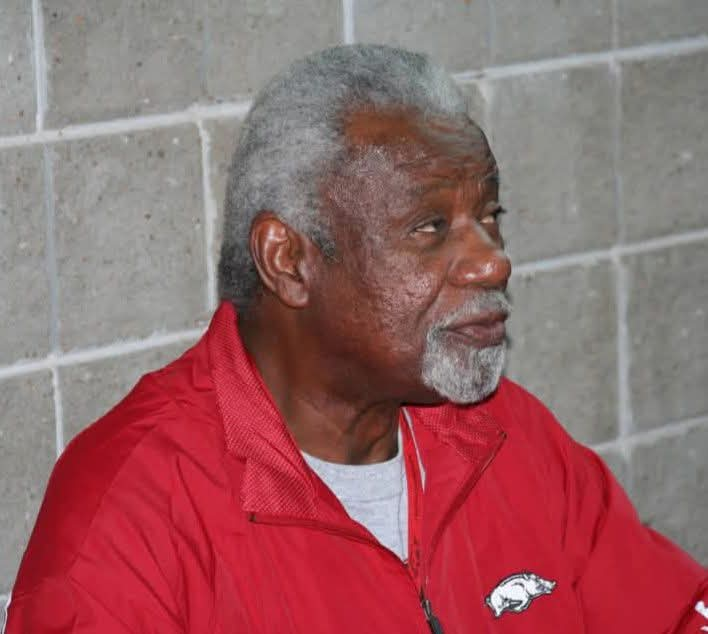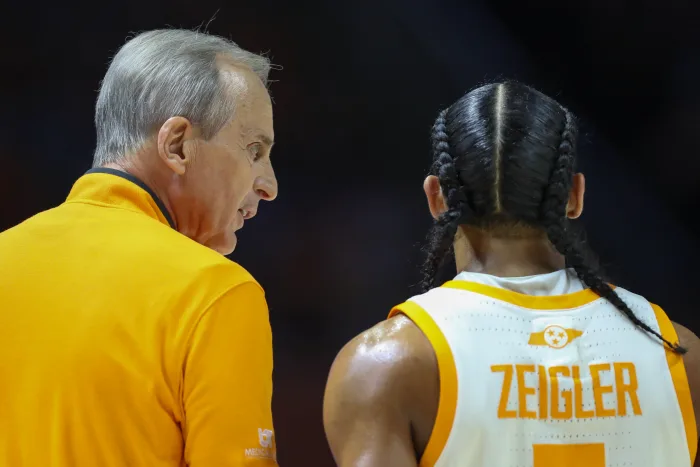Stephen A. Smith Apologizes After Erroneously Declaring Arkansas Icon Nolan Richardson Dead
ESPN’s outspoken commentator Stephen A. Smith found himself at the center of controversy once again after mistakenly referring to Arkansas basketball legend Nolan Richardson as “the late, great” during a live segment on First Take. The misstatement, which implied that the 83-year-old Hall of Fame coach had passed away, quickly drew criticism from fans and media alike, prompting Smith to issue an on-air apology and clarify that he fully recognizes Richardson is still very much alive.
The incident occurred during an analysis of the Razorbacks’ performance in the NCAA Tournament. As the conversation shifted to evaluating John Calipari’s recruiting prowess and the storied history of Arkansas basketball, Smith attempted to draw comparisons between Calipari’s modern approach and the legacy of Richardson—a coach who is revered for his tenure from 1985 to 2002 and for leading the Razorbacks to multiple NCAA Tournament successes. In his enthusiastic commentary, Smith said, “He’s gonna be able to recruit better than anybody ever has there outside of Mr. 40 Minutes of Hell himself, the late great Nolan Richardson. God rest his soul.” Almost immediately, it became clear that his reference was factually inaccurate.
Within moments of the slip-up, Smith transitioned into an apology. “I am fully aware that Nolan Richardson is alive. Trust me. I apologize for that,” he stated in the next segment. He continued, “I don’t know why I said, ‘God rest his soul.’ I know he’s alive, I’ve always known that. I just wanted to make sure I made that clear before we moved on to the show.” Despite his quick correction, the mistake resonated across social media and sports news platforms, reigniting debates over his on-air accuracy and the high-profile errors that have plagued his recent broadcasts.
This wasn’t the first misstep by the ESPN veteran in recent days. Earlier in the week, Smith found himself in hot water for another erroneous remark concerning NBA superstar LeBron James. During a segment, he incorrectly claimed that LeBron had failed to attend Kobe Bryant’s memorial service. Although Smith later retracted that statement and apologized—clarifying that he had misspoken during the first hour of the broadcast—the backlash over his repeated inaccuracies has raised questions about the reliability of his commentary.
A History of Controversial Commentary
Stephen A. Smith has long been known for his bold and sometimes incendiary commentary. Having been a prominent figure on ESPN since 2003, his career is marked by a mix of passionate analysis and memorable, often controversial, remarks. Smith’s role as an executive producer on First Take has only amplified his influence in sports media, but it has also made him a lightning rod for criticism when his words stray from fact. His recent series of misstatements has prompted many fans to wonder if his trademark style is beginning to impact his credibility.
Richardson, in contrast, is widely respected in college basketball circles. Nicknamed “Mr. 40 Minutes of Hell” for his fiery coaching style, he built a reputation over a 17-season career that saw him lead Arkansas to 13 NCAA Tournament appearances, including a national championship in 1994 and three Final Four berths. Richardson’s contributions to the sport have earned him a permanent place in the Basketball Hall of Fame, and his legacy continues to be celebrated by former players, coaches, and Razorback fans. That Stephen A. Smith would inadvertently “kill off” such an iconic figure on live television has not sat well with many in the sports community.
Public and Media Reaction
The gaffe quickly became a trending topic on social media. Fans of Arkansas basketball and longtime supporters of Nolan Richardson expressed their disbelief and disappointment. Many took to Twitter and other platforms to point out the error, emphasizing the enduring influence of Richardson’s coaching career. “I can’t believe Stephen A. just said that about Nolan Richardson,” one Twitter user remarked. “The man is alive and kicking—he’s a legend!” Others questioned whether Smith’s repeated mistakes indicated a larger issue with his on-air performance.
Media outlets covering the story were equally swift to report on the incident. Headlines across various sports news websites noted that Smith had once again found himself needing to clarify his statements after an on-air slip-up. In a particularly scathing piece, one article described the incident as “another instance of Smith’s unfortunate habit of conflating his commentary with unfounded claims.” Despite the negative press, some commentators suggested that the apology was a necessary step in mitigating the fallout and reaffirming Smith’s awareness of the facts, even as his choice of words led to confusion.
Context and Implications
This incident underscores the delicate balance that high-profile commentators must maintain between engaging, passionate analysis and factual precision. For Stephen A. Smith, whose style has often been as polarizing as it is entertaining, the mistake serves as a reminder that even seasoned professionals are not immune to lapses in judgment. The sports world, which thrives on robust debate and the sharing of opinions, sometimes leaves little room for error—especially when those errors involve the legacy of revered figures like Nolan Richardson.
Smith’s quick apology did little to assuage critics who have grown weary of his repeated errors. However, it did highlight his commitment to correcting his mistakes in real time. “I know he’s alive, I’ve always known that,” Smith reiterated, stressing that the error was not a result of ignorance but a misspoken comment in the heat of live television. Whether this incident will have any lasting impact on his career remains to be seen, but it certainly has reignited discussions about the standards of commentary expected from major sports networks.
Moreover, the incident raises broader questions about the culture of live sports broadcasting, where the pressure to deliver immediate, energetic analysis can sometimes override the need for careful fact-checking. As audiences become increasingly savvy and vocal, the margin for error continues to shrink. This episode, along with the earlier mistake regarding LeBron James, may prompt ESPN and similar networks to reassess the checks and balances in place during live broadcasts.
Looking Ahead
In the wake of this controversy, fans and critics alike are watching closely to see if Stephen A. Smith can rebound from these missteps. His track record over the past two decades shows a capacity for resilient, spirited commentary, but it also leaves a trail of memorable controversies that sometimes overshadow his insights. For Richardson, the inadvertent mischaracterization is unlikely to tarnish his storied legacy—a legacy built over years of hard work, fierce competition, and groundbreaking achievements in college basketball.
For now, the incident serves as a cautionary tale about the pitfalls of live sports commentary and the importance of accuracy, even in the most dynamic of broadcast environments. As the NCAA Tournament continues and the Razorbacks look to build on their rich history, the focus will undoubtedly shift back to the game itself. Meanwhile, Stephen A. Smith’s apology remains a stark reminder that even the most seasoned media personalities can falter under pressure.
The incident has sparked a broader dialogue about the evolving role of sports commentators in the digital age. With social media providing instant feedback and holding public figures to ever-higher standards, the pressure to be both entertaining and accurate is immense. While Smith’s passionate delivery has earned him a loyal following, this latest error highlights the risks inherent in blending opinion with factual reporting. It remains to be seen whether this will result in any substantive changes to his approach or the network’s editorial processes.
In a world where every misstatement is amplified and dissected, the lessons from this episode are clear: clarity and precision are as crucial as the passion and energy that make live sports broadcasting so compelling. For ESPN, ensuring that its stars deliver both with equal proficiency may be the key to maintaining credibility in an era where facts are as fiercely guarded as opinions.
As the dust settles on this latest blunder, sports fans continue to debate not only the merits of the Razorbacks’ performance but also the role of commentary in shaping our understanding of sports history. In the end, while the mistake was promptly corrected, the incident will likely be remembered as another chapter in the long and sometimes tumultuous career of Stephen A. Smith—a career defined as much by his fiery rhetoric as by his undeniable impact on sports media.



